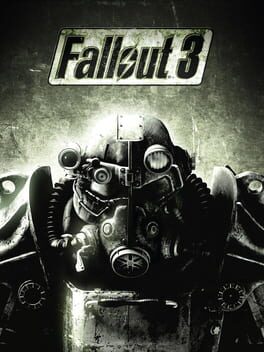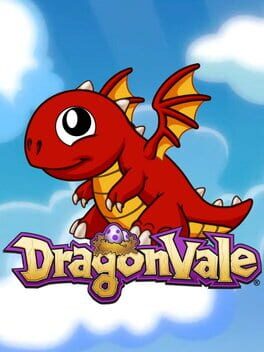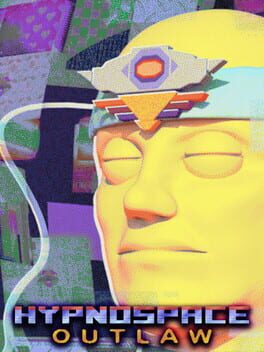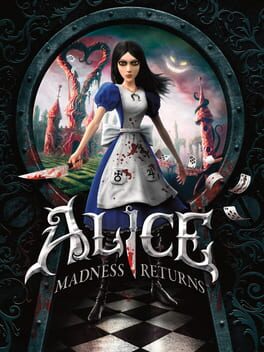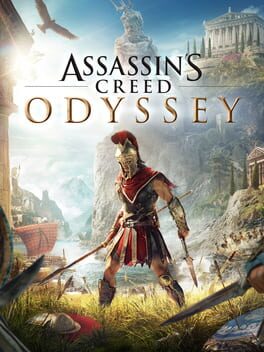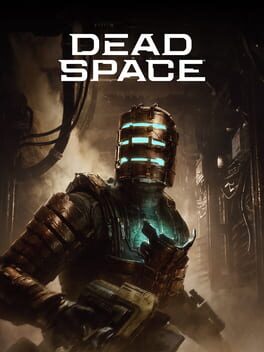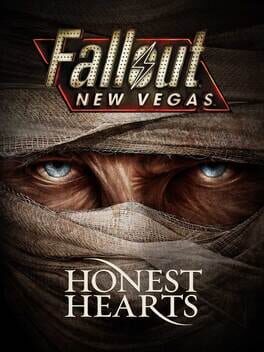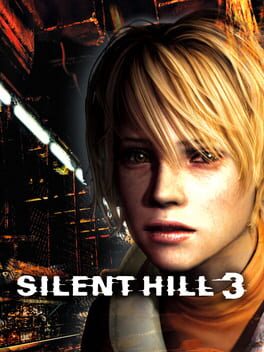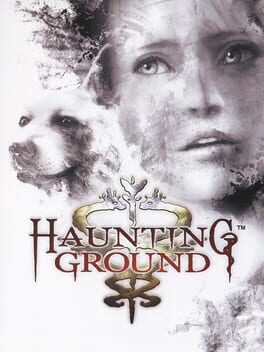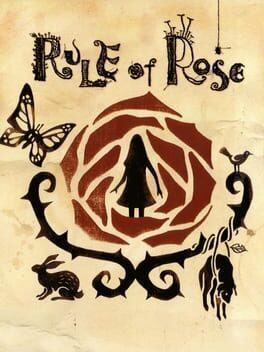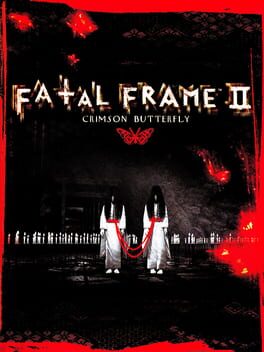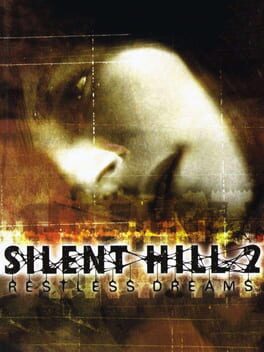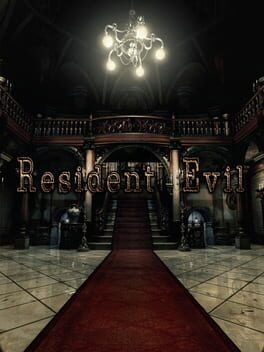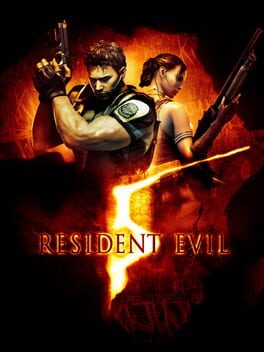Discostarter
21 reviews liked by Discostarter
Fallout 3: The Pitt
2009
The Pitt isn't necessarily an underrated gem of the Bethesda DLC canon, as tons of people sing praises towards this add-on's excellent handling of atmosphere and location-crafting.
So I caution myself before I tell people that this thing is an overlooked gem. In truth, The Pitt is a good DLC. Almost bordering on great even, but after multiple playthroughs I am starting to get just a LIIIITTLE exhausted with this thing lol.
But first, I have to clarify that I am absolutely in love with post-apocalyptic Pittsburgh as a location and the lore behind the slaver boss Asher. Locations such as the steelyard, the main factory, the bridge leading into The Pitt, and Haven are unforgettable. Seriously, I believe that the best part of this DLC is simply walking through it all.
The actual gameplay side of things is where this thing tends to fall apart. If you look at the narrative's sequence of events from a bird's-eye-view, you can start to realize just how... bare-bones this DLC's plot really is. In an attempt to pad-out the runtime of this DLC, BGS introduced the aforementioned location of the Steelyard.
The Steelyard is a point of contention for Fallout fans. Some love the rewards it gives players for dilligently collecting all steel ingots, while others find it boring and a slog to get through.
I tended to fall into the camp of the former. But after playing this DLC for like... the seventh time? I am SICK and TIRED OF IT! lol
The gear is cool to have, and in every TTW playthrough I make it a point to collect as much unique pieces of gear as possible, but I have rarely, if ever, used the weapons from The Pitt back in the maingame. Maybe besides the auto-axe that ignores DT and DR. But the armor, and the guns? Kinda useless.
But when you're in this DLC, it's so much fun. The location of The Pitt is second to Point Lookout as my favorite in-game location within Fo3, and its strides in creating atmosphere cannot be ignored. But as for a very, VERY basic sequence-of-events in the narrative and an annoying steelyard to scour, The Pitt ends up just as a good DLC.
So I caution myself before I tell people that this thing is an overlooked gem. In truth, The Pitt is a good DLC. Almost bordering on great even, but after multiple playthroughs I am starting to get just a LIIIITTLE exhausted with this thing lol.
But first, I have to clarify that I am absolutely in love with post-apocalyptic Pittsburgh as a location and the lore behind the slaver boss Asher. Locations such as the steelyard, the main factory, the bridge leading into The Pitt, and Haven are unforgettable. Seriously, I believe that the best part of this DLC is simply walking through it all.
The actual gameplay side of things is where this thing tends to fall apart. If you look at the narrative's sequence of events from a bird's-eye-view, you can start to realize just how... bare-bones this DLC's plot really is. In an attempt to pad-out the runtime of this DLC, BGS introduced the aforementioned location of the Steelyard.
The Steelyard is a point of contention for Fallout fans. Some love the rewards it gives players for dilligently collecting all steel ingots, while others find it boring and a slog to get through.
I tended to fall into the camp of the former. But after playing this DLC for like... the seventh time? I am SICK and TIRED OF IT! lol
The gear is cool to have, and in every TTW playthrough I make it a point to collect as much unique pieces of gear as possible, but I have rarely, if ever, used the weapons from The Pitt back in the maingame. Maybe besides the auto-axe that ignores DT and DR. But the armor, and the guns? Kinda useless.
But when you're in this DLC, it's so much fun. The location of The Pitt is second to Point Lookout as my favorite in-game location within Fo3, and its strides in creating atmosphere cannot be ignored. But as for a very, VERY basic sequence-of-events in the narrative and an annoying steelyard to scour, The Pitt ends up just as a good DLC.
XDefiant
2024
A Call of Duty clone paired with hero shooter elements that somehow works and is fun?
The game features excellent movement and gunplay mechanics, combined with classes and abilities, creating a perfect blend for fans of both genres. It is very easy to pick up and play, with straightforward three-lane maps designed around objective-based gameplay (such as capturing the flag or pushing the payload). The combat is satisfying, with each class (currently five in total) having two unique abilities, and guns that you can customize in your loadout.
For me, the best part is that the abilities serve as an additional way to engage in fights, while gunplay remains the main focus. Unlike games like VALORANT, which, in my opinion, failed to balance this and ended up with overpowering hero abilities, this game keeps the emphasis on shooting skills.
The main downside will be game balance and the fact that it is managed by UBISOFT. Maybe this will become garbage in the upcoming months/years because of introducting P2W elements, badly managing the game etc. However, for now, the game is perfectly fine to play and serves as an interesting competitor to modern-day shooters.
As a fan of fast-paced shooters, this game was exactly what I needed, especially after skipping last year's lackluster Call of Duty release.
The game features excellent movement and gunplay mechanics, combined with classes and abilities, creating a perfect blend for fans of both genres. It is very easy to pick up and play, with straightforward three-lane maps designed around objective-based gameplay (such as capturing the flag or pushing the payload). The combat is satisfying, with each class (currently five in total) having two unique abilities, and guns that you can customize in your loadout.
For me, the best part is that the abilities serve as an additional way to engage in fights, while gunplay remains the main focus. Unlike games like VALORANT, which, in my opinion, failed to balance this and ended up with overpowering hero abilities, this game keeps the emphasis on shooting skills.
The main downside will be game balance and the fact that it is managed by UBISOFT. Maybe this will become garbage in the upcoming months/years because of introducting P2W elements, badly managing the game etc. However, for now, the game is perfectly fine to play and serves as an interesting competitor to modern-day shooters.
As a fan of fast-paced shooters, this game was exactly what I needed, especially after skipping last year's lackluster Call of Duty release.
Lies of P
2023
This review contains spoilers
Lies of P is a game about lying.
For a game that copies a lot of the most recognizable characteristics of From Software games, it still feels like a wholly original and unique game despite how many people write this game off as a ‘Bloodborne clone’. What I think Lies manages to do that other souls-likes fail at is advancing the design elements of From rather than simply siphoning their mechanics to influence how the player perceives the game: Pulse Cells are analogous to the Estus Flask, but also let you recharge your final Cell if you perform well enough in combat, opening up build options in whether you want to do more damage in this riskier state or simply want a faster charge rate. Legion Arms reflect a much more limited, less abusable version of Sekiro’s Shinobi Prosthetic, and Guard Regain’s compatibility with blocked damage places this game in an aggression range between DS3 and Bloodborne, with the parry-focused combat of Sekiro.
Because of these various yet closely associated influences, the game is almost like a perfect remix of the Fromsoft formula, allowing you to appreciate where certain ideas are pulled from before the game puts a new spin on them. I’m personally incredibly happy with the level design of this game, which feels like it draws most directly from Dark Souls II of all places, a risky choice considering the general attitude most people have towards that game. One of my biggest complaints with Dark Souls III is how that games’ level design very quickly abandons any aspect of interconnectivity or large-scale exploration that the first two games in the series allowed for in favor of an almost entirely linear experience that put its combat front and center, for better or worse. Lies of P manages to somehow have the best of both worlds, with incredibly engaging bosses that I always look forward to fighting and levels that don’t feel like straight lines with an absurd number of bonfires. Most levels here wrap around themselves in really impressive ways that allow for stargazers to be placed incredibly sparingly, a design choice I will always prefer to DS3’s more ‘theme-park’ approach to level progression.
Beyond the game’s astonishing level of mechanical cohesion (I haven’t even mentioned the Assembly system, which is honestly reason enough to play this game if you’re a fan of games with similar combat systems), the cohesion of this game’s story is criminally undervalued. I can’t really blame most people for not being able to take this game seriously for being a soulslike about… Pinnochio, especially when most of our internal perceptions of the character are either of the Disney version or the character in the Shrek movies. You’re just going to have to trust me when I say that this game is a very thought-out adaptation of the source material and doesn’t simply use the Pinocchio property as a shallow aesthetic stunt. Lies is a game that actually uses the property it’s adapting within the vehicle of it’s story, and I have an endless respect for this game in how much faith it has in its own concept. When asked “What makes someone human?” Carlo Collodi’s The Adventures of Pinnochio serials answers that it is our ability to help others and act for their sake that makes us human, as shown in Pinocchio’s transformation at the end of the story after months of studying, working hard and saving money to care for his sick father. Lies of P’s answer, is actually not very different: We’re human because we can choose to act, and by exercising our agency we help each other far more than we help only ourselves. The game’s Real Boy ending sees everyone in the hotel replaced with a puppet copy after being killed by the newly reborn, perfectly obedient Carlo, after. The game’s most ‘Pinocchio’ mechanic, Lying, even shows a refreshing amount of nuance and respect to human morality by never painting the choice to lie or not as a simple choice between ‘doing the right thing’ and ‘doing the wrong thing’. Many of the choices in this game feel like they lack a ‘right’ answer, but often I found that lying to most people was often a mercy that showcased how communication often has to fulfill an emotional need more than a logical one. That’s not to say that lying is always the new ‘right thing’ in this game; Although the best ending in the game requires you to express your humanity a lot (through lying, mostly), the game still has a couple lies that genuinely stumped me on whether I wanted to lie or not; Do you decipher Alidoro’s scroll and tell Eugenie’s brother is dead? Do you tell Venigni that your own father is responsible for the destruction of Krat? Do you admit to Arlecchino that you are, in fact, a murderer? I can’t begin to express how relieving it is that this game isn’t trying to lecture the player about honesty or morality, understanding that lying is both innately amoral and innately part of the human experience. Lying is a choice, and what is more human than the ability to make our own choices?
Lies of P is the most honest game I’ve played.
For a game that copies a lot of the most recognizable characteristics of From Software games, it still feels like a wholly original and unique game despite how many people write this game off as a ‘Bloodborne clone’. What I think Lies manages to do that other souls-likes fail at is advancing the design elements of From rather than simply siphoning their mechanics to influence how the player perceives the game: Pulse Cells are analogous to the Estus Flask, but also let you recharge your final Cell if you perform well enough in combat, opening up build options in whether you want to do more damage in this riskier state or simply want a faster charge rate. Legion Arms reflect a much more limited, less abusable version of Sekiro’s Shinobi Prosthetic, and Guard Regain’s compatibility with blocked damage places this game in an aggression range between DS3 and Bloodborne, with the parry-focused combat of Sekiro.
Because of these various yet closely associated influences, the game is almost like a perfect remix of the Fromsoft formula, allowing you to appreciate where certain ideas are pulled from before the game puts a new spin on them. I’m personally incredibly happy with the level design of this game, which feels like it draws most directly from Dark Souls II of all places, a risky choice considering the general attitude most people have towards that game. One of my biggest complaints with Dark Souls III is how that games’ level design very quickly abandons any aspect of interconnectivity or large-scale exploration that the first two games in the series allowed for in favor of an almost entirely linear experience that put its combat front and center, for better or worse. Lies of P manages to somehow have the best of both worlds, with incredibly engaging bosses that I always look forward to fighting and levels that don’t feel like straight lines with an absurd number of bonfires. Most levels here wrap around themselves in really impressive ways that allow for stargazers to be placed incredibly sparingly, a design choice I will always prefer to DS3’s more ‘theme-park’ approach to level progression.
Beyond the game’s astonishing level of mechanical cohesion (I haven’t even mentioned the Assembly system, which is honestly reason enough to play this game if you’re a fan of games with similar combat systems), the cohesion of this game’s story is criminally undervalued. I can’t really blame most people for not being able to take this game seriously for being a soulslike about… Pinnochio, especially when most of our internal perceptions of the character are either of the Disney version or the character in the Shrek movies. You’re just going to have to trust me when I say that this game is a very thought-out adaptation of the source material and doesn’t simply use the Pinocchio property as a shallow aesthetic stunt. Lies is a game that actually uses the property it’s adapting within the vehicle of it’s story, and I have an endless respect for this game in how much faith it has in its own concept. When asked “What makes someone human?” Carlo Collodi’s The Adventures of Pinnochio serials answers that it is our ability to help others and act for their sake that makes us human, as shown in Pinocchio’s transformation at the end of the story after months of studying, working hard and saving money to care for his sick father. Lies of P’s answer, is actually not very different: We’re human because we can choose to act, and by exercising our agency we help each other far more than we help only ourselves. The game’s Real Boy ending sees everyone in the hotel replaced with a puppet copy after being killed by the newly reborn, perfectly obedient Carlo, after. The game’s most ‘Pinocchio’ mechanic, Lying, even shows a refreshing amount of nuance and respect to human morality by never painting the choice to lie or not as a simple choice between ‘doing the right thing’ and ‘doing the wrong thing’. Many of the choices in this game feel like they lack a ‘right’ answer, but often I found that lying to most people was often a mercy that showcased how communication often has to fulfill an emotional need more than a logical one. That’s not to say that lying is always the new ‘right thing’ in this game; Although the best ending in the game requires you to express your humanity a lot (through lying, mostly), the game still has a couple lies that genuinely stumped me on whether I wanted to lie or not; Do you decipher Alidoro’s scroll and tell Eugenie’s brother is dead? Do you tell Venigni that your own father is responsible for the destruction of Krat? Do you admit to Arlecchino that you are, in fact, a murderer? I can’t begin to express how relieving it is that this game isn’t trying to lecture the player about honesty or morality, understanding that lying is both innately amoral and innately part of the human experience. Lying is a choice, and what is more human than the ability to make our own choices?
Lies of P is the most honest game I’ve played.
Fallout 3
2008
A pleasure to replay this game after more than 10 years.
I played for the first time on ps3 when i was in highschool.
Now i can play on a portable device (steam deck) and my own PC !
For a long time i remembered NEW VEGAS better because it is a better game and more memorable. So it was actually quite nice to rediscover this game because i had forgotten almost everything about it.
I played for the first time on ps3 when i was in highschool.
Now i can play on a portable device (steam deck) and my own PC !
For a long time i remembered NEW VEGAS better because it is a better game and more memorable. So it was actually quite nice to rediscover this game because i had forgotten almost everything about it.
DragonVale
2011
Hypnospace Outlaw
2019
holy shit. this game offers the experience of the late 1990s internet, while not only being visually beautiful its also very nostalgic (the music also slapped) and while those things were something I adored in this game I had to appreciate the uncanny storytelling that leaves the player unsettled. Its dark, but very realistic and you almost feel like you were there for its events.
oh boy this was just great, the story was the perfect twist to alice in wonderland and the visuals were absolutely stunning. every single chapter had me blown away because of the art direction and how different the areas were.
now my flaws are probably around the mid section of the game, id say chapter 2 & 3 felt repetitive, even though the visuals were beautiful the same enemies were being reused and the story didn't progress as much but outside of that every chapter was amazing especially the last ones.
now my flaws are probably around the mid section of the game, id say chapter 2 & 3 felt repetitive, even though the visuals were beautiful the same enemies were being reused and the story didn't progress as much but outside of that every chapter was amazing especially the last ones.
Sorry to dissappoint y'all, but despite being into history and art, I'm not the Assassin's Creed type of girl, this was my first one, so it didn't feel like a letdown to me at all, I actually loved it, as I really like Greece.
I totally understand that some people might be tired of the formula cause this game was really similar to Origins, to the point that it could have been a DLC, and that some other people felt betrayed cause this isnt what Assassins Creed was/was meant to be and it was more like "The Witcher" instead, but honestly, it was quite a ride for me.
If we analyze this game as a standalone title, it's pretty solid, there arent many real cons, aside from the classic ubisoft problems that persist in every single piece of media they make.
What can I say, I personally enjoyed the story, the graphics, the setting, the soundtrack (ocasionally) and the whole adventure!
I totally understand that some people might be tired of the formula cause this game was really similar to Origins, to the point that it could have been a DLC, and that some other people felt betrayed cause this isnt what Assassins Creed was/was meant to be and it was more like "The Witcher" instead, but honestly, it was quite a ride for me.
If we analyze this game as a standalone title, it's pretty solid, there arent many real cons, aside from the classic ubisoft problems that persist in every single piece of media they make.
What can I say, I personally enjoyed the story, the graphics, the setting, the soundtrack (ocasionally) and the whole adventure!
Dead Space
2023
from what i played i really liked the atmosphere of this game but like ummm that’s really it i didn’t fw the gameplay like at all and for the majority of the time i was playing it was just running back and forth through that ugly, eye sore of a ship but it was cool for the most part i just didn’t fw like i thought i would
3 lists liked by Discostarter



